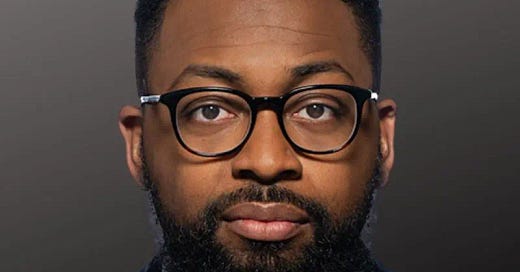Political Discourse
CAT-EATING HAITIANS AND BROKEN POLITICS
How we talk about one another matters
Delano Squires
Springfield, Ohio presents an opportunity to have serious debates about one of the most important issues facing America today: immigration. Unfortunately, we are not having serious policy discussions. You can tell we’re not because politicians and pundits are focused more on explosive (and largely unsubstantiated) claims of people eating cats and geese than on wages, demographic change, cultural compatibility and assimilation, or why some employers feel they can’t consistently fill job openings with longtime residents.
The challenges facing the people in Springfield are one issue. How they are discussed in the media, by politicians, and by social commentators is another.
And right now, one question we should all be asking ourselves is this: When is stereotyping acceptable and how common must a particular behavior be among a group of people for us to legitimately attribute it to the entire population? Whatever answer we decide on collectively—if that’s even possible—needs to be applied consistently.
This point goes far beyond immigration. Some conservatives who typically oppose assigning guilt on a group level (e.g., to the police) have had no issue doing so when it comes to Springfield. Some of the same people who are still upset at Hillary Clinton for her grossly generalizing “basket of deplorables” comment have no problem making blanket statements about the “other” if it advances their political goals.
How we speak about people, including ones we don’t know, understand, or perhaps even like, matters. One reason why is because most Americans, including 95% of those on social media (where the debate about Haitian immigrants has raged), are far too sensitive to stomach name-calling (e.g., “savages”) if it became our default mode of political communication. In other words, most people can’t take what they can easily dish out. This observation is one thing that unites every identity category—individual and intersectional—in our culture. Many people have the tongue of a lion and the ears of a lamb, but you can’t generalize and stigmatize when mocking outsiders and then start squealing like a stuck pig when the same standard is applied to your preferred identity group. This is one reason we should use our words to turn up the light and turn down the heat when it comes to our most important policy debates.
Delano Squires is a Research Fellow in the Richard and Helen DeVos Center for Life, Religion, and Family at The Heritage Foundation.
He is also a contributor to Blaze Media, where he writes about faith, family, and culture, and to BlazeTV’s Fearless with Jason Whitlock podcast.
Delano's articles and essays have been published by Newsweek, The American Conservative, The Federalist, The Institute for Family Studies, Black and Married with Kids, The Root, and The Grio. He appeared on the Free Black Thought Podcast to discuss creating a black marriage culture and other topics in February.
Before joining The Heritage Foundation, Delano worked for the District of Columbia government for more than a decade. During that time, he provided free technology training classes for job-seekers, ex-offenders, and senior citizens. He also created digital exploration programs for K-12 students, subsidized internet service and provided free computer repair for low-income families, and ran several citywide public awareness campaigns.
Delano won the 2016 State Technology Innovator Award from the National Association of State Chief Information Officers (NASCIO) for his work on converting a bookmobile into a Mobile Tech Lab that was used to bring internet access and training to D.C. public housing communities.
He spent his final year in D.C. government with the Office of Gun Violence Prevention (OGVP), working with residents and local stakeholders to address violent crime in the nation’s capital.
Delano grew up in New York City and earned his bachelor of science degree in Computer Engineering from the University of Pittsburgh and a graduate degree in Public Policy from The George Washington University. He resides in Maryland with his wife and their three young children. Follow him on X here.





I agree, in general. but wonder if it's really stereotyping when we're talking about culture, especially that of another country? Immigrants bring their cultures with them. Over the last couple of centuries we've learned and embraced other cultures because they aren't against our own Western values. In other instances, we've had to fight cultures that are in opposition to our own.
I agree! Trump makes me so mad when he makes wild and irresponsible statements like he did in the debate about eating cats. There was one report of a mentally deranged person far from Springfield who ate a cat, but that isn't relevant. Even if his statement was true, people who don't like him in the first place will take it the wrong way, especially when it is said in such a nasty tone.
People from a different culture probably can't understand why a duck or a goose should not be eaten. Why not?! Ducks and geese are good food! In Haitian Voodoo, animal sacrifices are real, but that was not what Trump was referring to.
What was unfair though, was that the moderators continually fact checked Trump, although they were wrong in what they said, and then allowed Kamala's deceitful lies to stand. Those of us who are interested in searching it out will be safe, but a lot of people just hear what was said and never seek the truth. It is the rhetoric that wins with most people, not the facts.